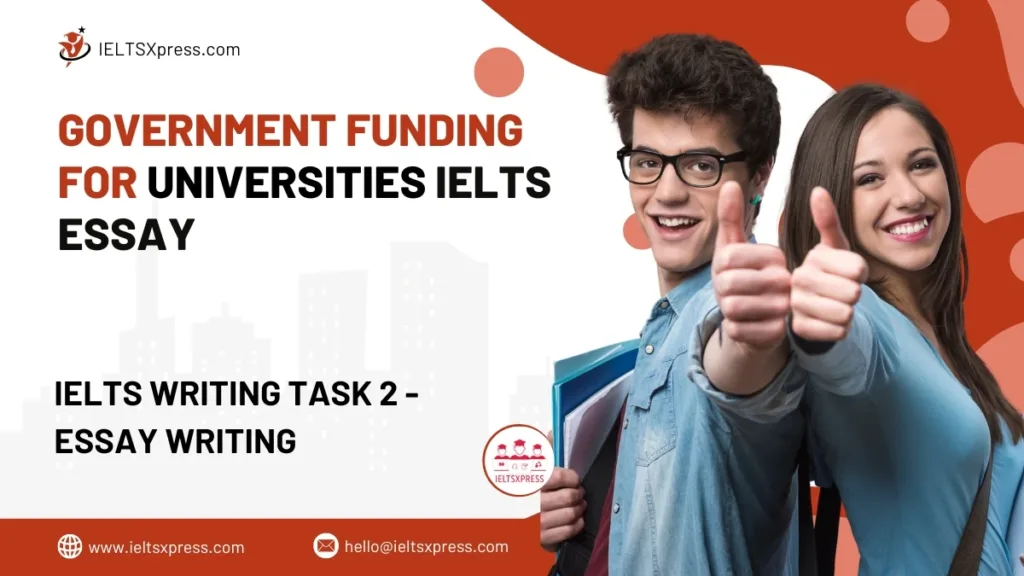Government Funding for Universities IELTS Essay Writing Task 2
This is an opinion-based essay that requires discussing whether government funding for universities: Scholarships vs. Public Support should be limited to scholarships for top students, with all other funding coming from tuition fees and private sources. To answer this, we will use a balanced approach, considering both sides of the argument before stating our own viewpoint. To what extent do you agree or disagree?
Give reasons for your answer and include any relevant examples from your own knowledge or experience. You should write at least 250 words.
Question Type and Strategy
The essay will follow a clear structure: an introduction, body paragraphs presenting both perspectives, and a conclusion summarizing our stance.
Introduction – Government funding for universities is a debated issue.
Body paragraphs – Support for Government Funding, Ensures education for all, regardless of financial status.
Conclusion – A balanced approach (partial government funding with student contributions) ensures affordability, sustainability, and quality education.
Government Funding for Universities IELTS Writing Task 2
Government funding plays a crucial role in higher education, and the debate over whether it should be restricted to scholarships for top students is highly relevant. While some argue that this approach promotes academic excellence and efficient use of public funds, others believe that it could limit access to education and increase financial burdens on students.
On the one hand, providing government funding only for the best students encourages academic competition and rewards merit. Scholarships can serve as an incentive for students to perform well in their studies, ultimately raising the overall academic standard. Additionally, limiting government support in this way could reduce the financial strain on taxpayers and allow more funds to be allocated to other essential sectors like healthcare and infrastructure.
On the other hand, restricting government funding to top students may lead to inequality in access to higher education. Many talented students from disadvantaged backgrounds may struggle to afford tuition fees without adequate financial support. Relying solely on private funding and tuition fees could result in increased student debt and commercialization of education, making it more about profit than learning. Moreover, universities that depend heavily on private funding may prioritize lucrative programs over essential but less profitable fields like humanities and social sciences.
In conclusion, while offering scholarships to top students is beneficial, limiting government funding to this approach alone could create barriers to education for many students. A balanced system, where both merit-based scholarships and broader public funding exist, would ensure that higher education remains accessible to all, regardless of financial background.
Also Check: Rich Countries Often Give Money To Poorer Countries IELTS Essay



